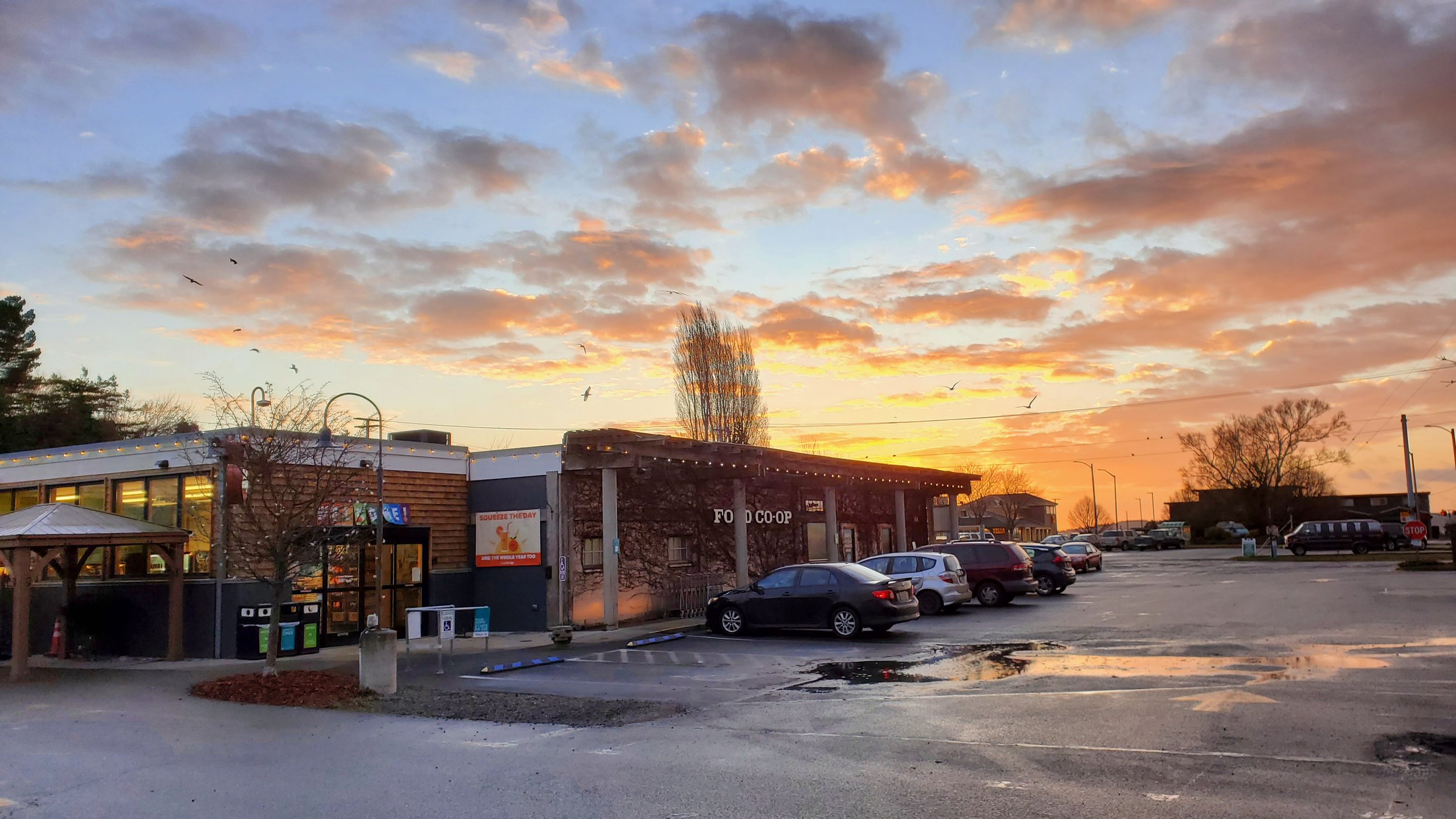January GM Report
By Kenna Eaton
Each month, I report to the board on how we are progressing on our long-term goals, which we call our Ends. These Ends reflect our aspirations—what we want to accomplish—and they are what makes us different from a regular grocery store. We publish these reports as a blog to keep our member-owners up to date on what we are doing.
The reports are organized by our five Ends, although not all are discussed in every report. Our Ends say that, as a result of all we do—
- Our community is well-served by a strong cooperative grocery store, integral to the lives of our customers, our farmers, and our producers.
- Our community has a resilient local and regional food economy, supported by our Co-op and our community partners.
- Our staff and board have the knowledge, skills, and passion to make our cooperative thrive.
- Our members and customers are proud to shop at a local cooperative grocery that is working to reduce its impact on the environment.
- Our community is informed, engaged, and empowered to join us in making a difference.
January General Managers Report
Working Together to Nourish our Community
As we wrap up the year with reflection and a look forward, we want to recognize the people—our dedicated members, our Board of Directors, and our talented staff—who have made our 50 years of cooperative business possible. Thank you all for all you do. Here's to the next 50 years of cooperation!
Market Relevance
We had lots of fun helping shoppers save money with our Field Day “Buy One Get One Free” sale during the second half of December. Thirty-seven pantry basics—pasta, rice, flour, olive oil, toilet paper, to name a few—filled our shelves and back rooms for weeks, and staff were kept busy refilling the shelves every day from the back stock. We also enjoyed putting together gift baskets for shoppers, including many local items. It’s slightly crazy and a labor of love for sure, but customers were pretty happy to find their gift giving made easier.
Food System Development
In local food news, we’re excited that Cape Cleare canned pink salmon is back on the shelf, after being unavailable for over two years. The label itself is a unique piece of art and worth checking out before you dig into the yummy salmon!
This month we are celebrating a different group of our vendors, local artists who produce calendars and cards. New Local 5 vendors providing us calendars this year are Roger Mosley Photography, from Forks, plus Kelly Doran and Velda Thomas, both artists from Port Townsend. Gatheringplace is the calendar of choice for many of our shoppers. This is their 29th year producing calendars that feature local artists. Proceeds directly fund programs that enrich the lives of participants of Gatheringplace. This year’s art is created by both professional artists and participants in the Gatheringplace art program.
Local card vendors are Mike Biskup, Martin Bydalek Photography, Curious Whispers, Kelly Doran, Kristen Etmund, Nina Everitt, Elizabeth VanDuine, Tom White, Wurm Wares, Yurkanis Originals. Five of these vendors are new.
Thriving Workplace
We closed out the year with two more internal promotions we are very excited about. Jeanette, our HR Generalist, has accepted the HR Manager position. Jeanette stepped into her new role at the beginning of December, and we look forward to her leadership and support. And our new Assistant Store Manager position will be filled by Estelle, who has worked in many positions at the Co-op over the years, most recently as Float Manager. Her new position is designed to help provide daily leadership at the store level for our staff.
Environment
Roughly one third of the food produced worldwide for human consumption is wasted or lost. This is enough food to feed 3 billion people and contributes heavily to greenhouse gas emissions. 40% of the lost food in developed countries occurs at the retail and consumer levels. The Food Co-op has worked for years to minimize the amount of food we throw into our dumpsters. Each department with perishables—grocery, food services, meat & seafood, and produce—has systems in place to redirect food. Often, we begin by reducing the price of food that will soon pass its “best sell by” date. (And by the way, “sell by” dates are set by the producer and do not necessarily represent when the product will actually go bad.) If that food doesn’t sell but is still edible, it is re-directed to the PT Food Bank, either fresh or frozen. And if it is considered inedible (produce trimmings for example) then it goes to farmers as compost. Or as a last resort (due to spoilage) it is thrown into our dumpsters. Staff hopes to conduct a waste audit this year to verify that we’re still doing all we can to reduce, reuse, or recycle.
Outreach
At the register shoppers are given a choice of an 8-cent credit or a bean for each bag or container that they reuse. Why 8 cents? That’s the price we are required to charge for a full-size grocery paper tote bag. Every year we select twelve non-profits to receive funds generated by those beans in a program called Beans for Bags (B4B). We were pleased this year to have many more local nonprofits nominated than ever before. With so many to choose from, the board’s Community Engagement Committee (CEC) had a tough time choosing which groups would benefit, but ultimately decisions were made, agreed upon, and announced. B4B recipients are changed every two months, although the PT Food Bank always gets a jar. To find out who the recipients are for 2023, check out the B4B page on our website www.foodcoop.coop.

